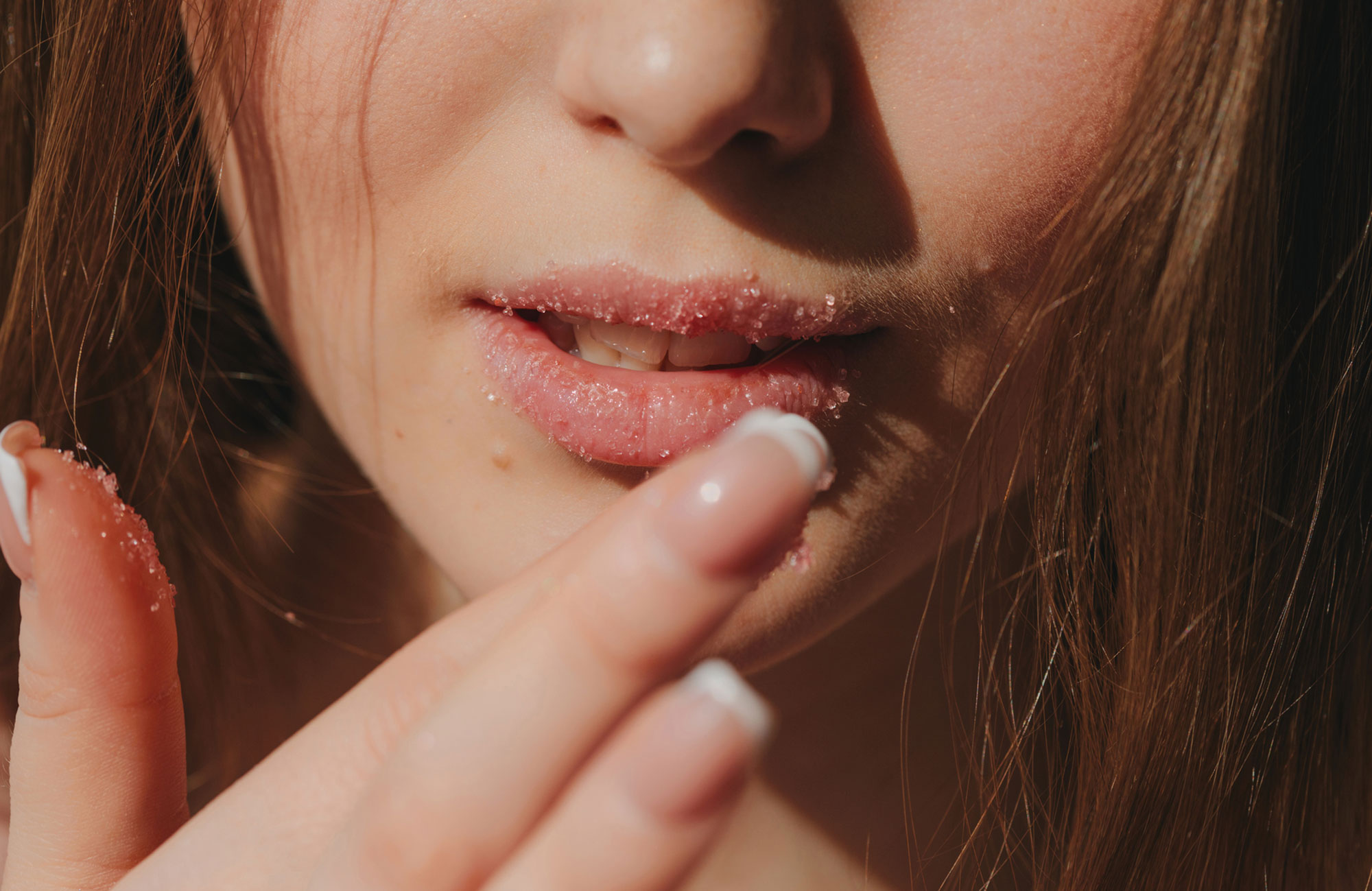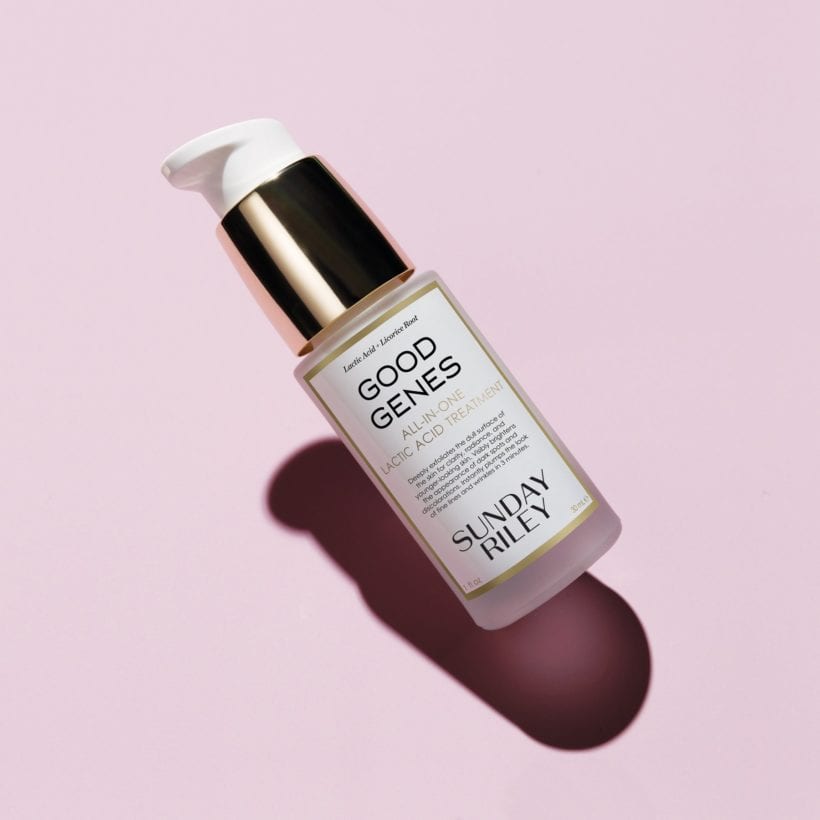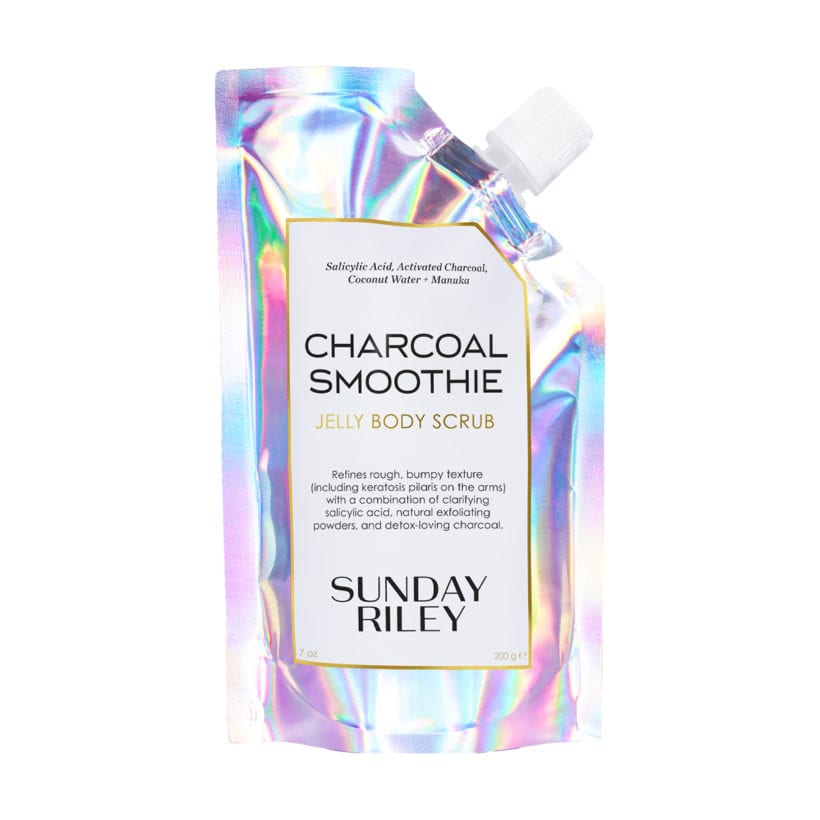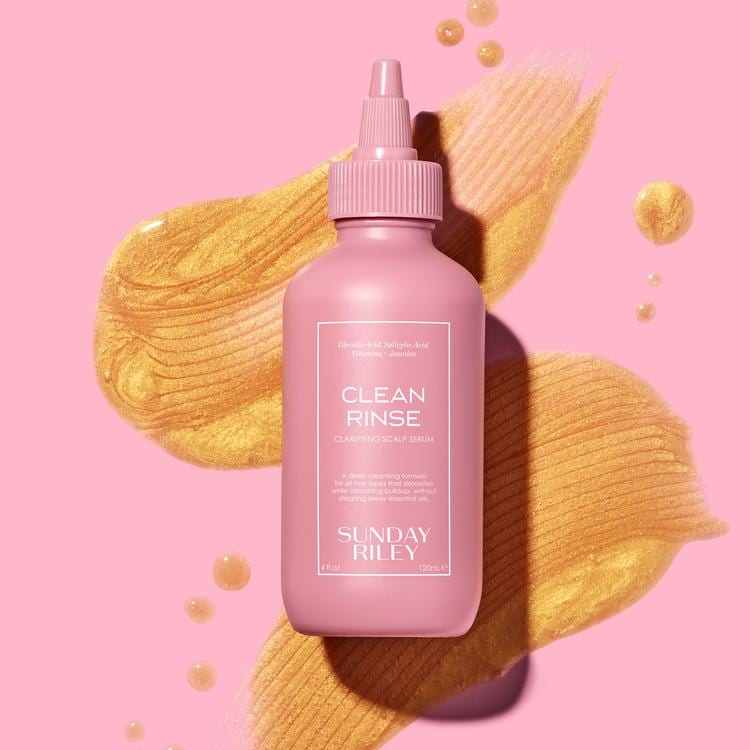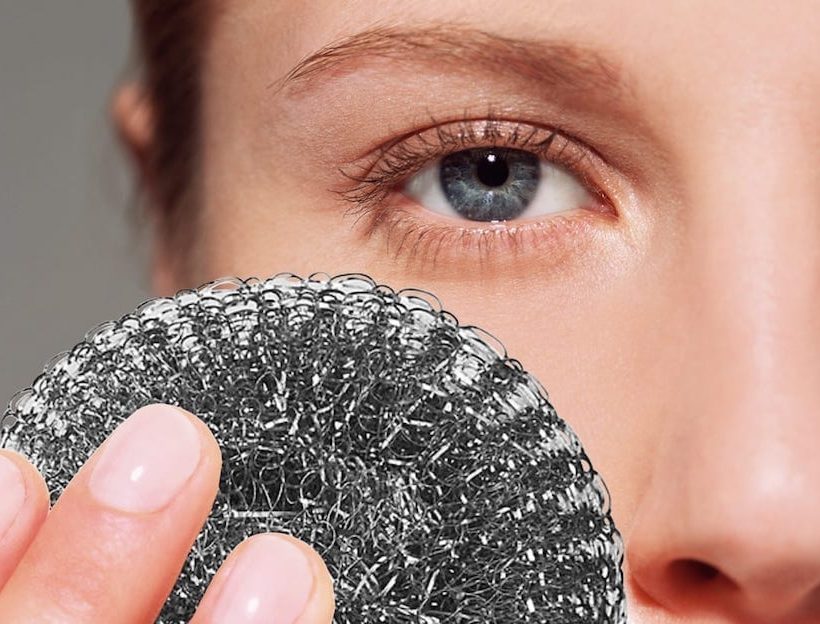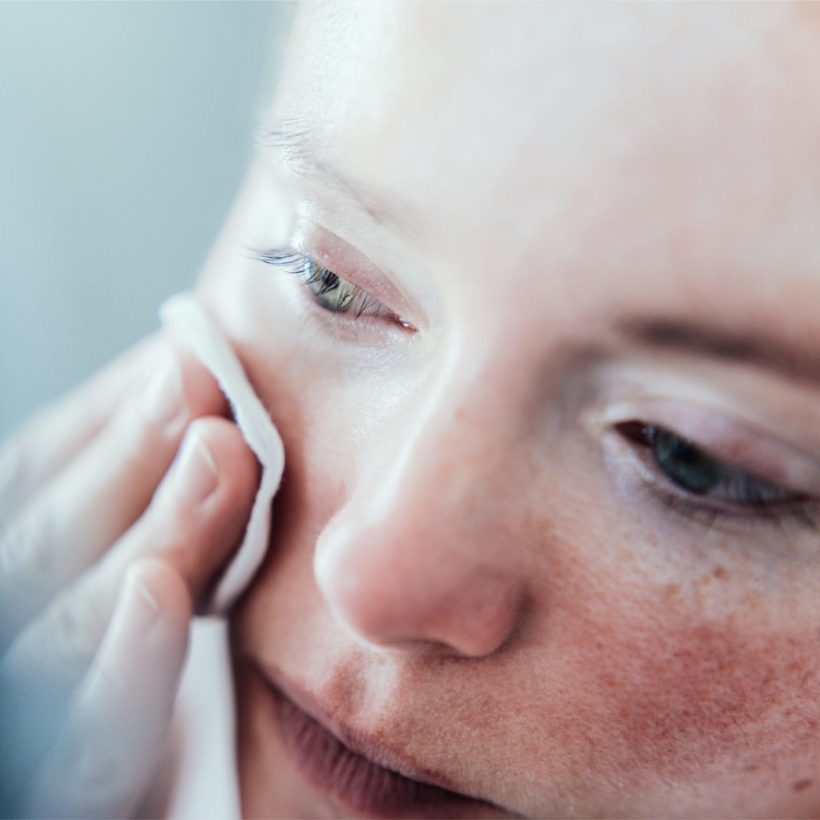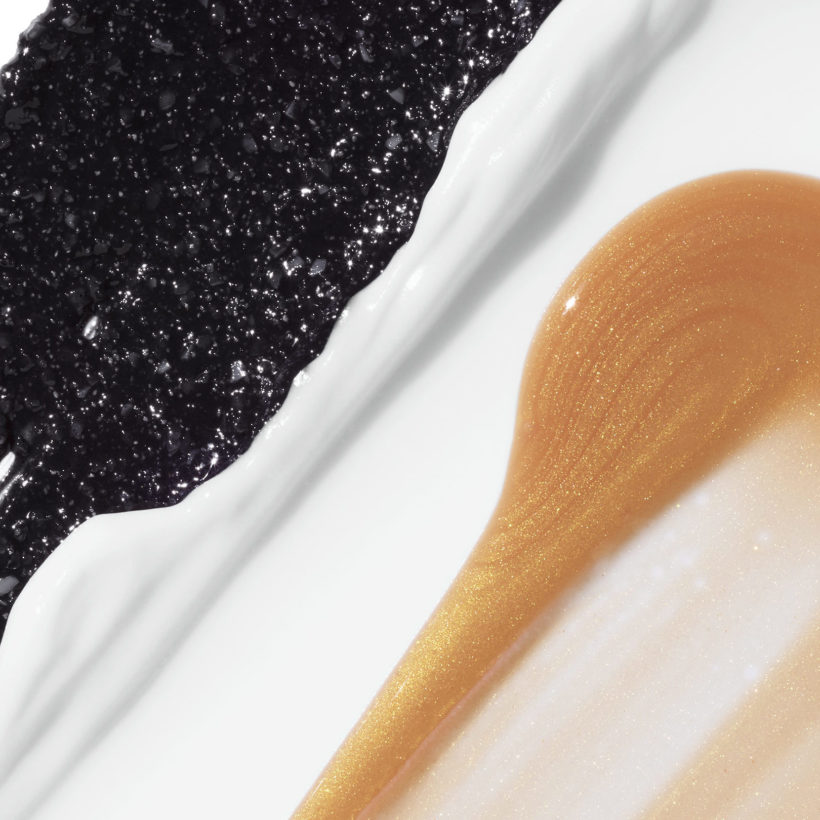We know, you’ve heard the benefits of exfoliation before: “It removes the buildup of dead skin from the epidermis, increases cell turnover rate, helps prevent clogged pores, brightens the complexion, improves hyperpigmentation, and helps your products penetrate deeper,” confirms Sarah Akram, a celebrity master esthetician and owner of Sarah Akram Skincare. But it’s one of those things, that if you don’t do it the right way, you may end up doing more harm than good. So how often should you exfoliate? It’s not so straightforward; but factors including the area of the body, your skin type, and your chosen exfoliant should be taken into consideration.
The Face
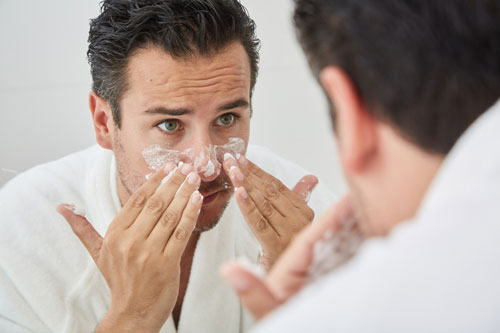
The first thing to know about exfoliating the face, is to start easy. “If you’re a beginner, exfoliating once a week and increasing is a good rule of thumb,” says Annie Wang, a Bay Area-based skincare expert. Try this for two to three weeks to see if there’s any kind of reaction like red, irritated, or itchy skin. “Those are signs of too much exfoliation,” she explains. But once your skin is used to the exfoliation, then you can do it a few times a week, provided you’re not using an overly-harsh scrub.
When it comes to types of exfoliants, there are two: Physical (or manual) and chemical. “Physical exfoliants usually consist of small particles that physically exfoliate your skin,” Wang says. “They can be more abrasive and damaging to the skin because the particles are literally scrubbing at your skin. So physical exfoliation should be limited to one to two times per week,” if at all; physical exfoliants can do more damage than good unless they are extremely gentle or you have very tough skin. On the other hand, “Chemical exfoliants are typically a leave-on product in a liquid format,” Wang explains. Sunday Riley Good Genes is an example of a chemical exfoliant that gently removes dead surface cells.
Akram says that those with sensitive skin should stick to chemical exfoliants. “These skin types may not be able to handle a physical exfoliant as it can feel harsh and contribute to sensitivity.” She says that sensitive complexions can usually use chemical exfoliants two times per week, whereas normal can use them daily, though three times per week should be adequate. “A general rule is that normal skin can tolerate stronger exfoliants and can tolerate exfoliation more often than those with sensitive skin,” says Akram. “If you’re oily due to sebum production, exfoliation helps. But sometimes over-exfoliation can cause oily skin due to it being stripped of its natural oils.” Try two to three times per week if you have oily skin and see how skin reacts and adjust from there. If you’re unsure or can’t find a sweet spot, Akram advises consulting a professional skin expert to guide you.
Sarah Akram
is a celebrity master esthetician and owner of Sarah Akram Skincare in Virginia.
Annie Wang
is a Bay Area-based skincare expert.
Meet the Experts
Don’t forget the lips, especially if you’re prone to chapping. “Weekly exfoliation is ideal to help keep the lips smooth and free of dead skin,” says Akram. “Most can handle a gentle daily exfoliation such as using a washcloth to gently scrub the lips, but daily lip exfoliation is not necessary.” Of course, if you find yourself in the sun a lot, or conditions like wind or snow, your lips might need more TLC.
But that’s not the only way environmental conditions can affect face exfoliation. For starters, “Normal and oily skin may find the need to exfoliate more often in warmer climates, but less in cooler climates as they may tend to be more dry,” says Akram. “Exfoliating in between the seasonal changes usually is needed to help the skin stay clear and adjust to the new climate.” Also, keep in mind that AHAs (alpha hydroxy acids, a common chemical exfoliant ingredient) “can make your skin more sensitive to sunlight, so I like to lessen my chemical exfoliation when it’s hot,” says Wang.
The Body
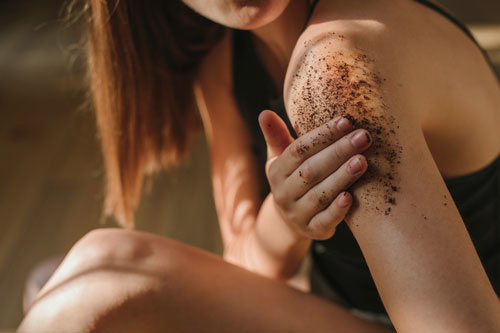
In general, you can exfoliate the body every couple of days, says Wang. Tools such as a dry brush (before showering) and washcloth, body gloves, or loofah (in the shower) work well to slough dry cells away. “Just remember to change them out often as they hoard bacteria,” reminds Akram. She adds that “certain problem areas” — places with thick skin like the elbows and heels — can be exfoliated more often. And Wang likes to use a chemical exfoliant for these spots. Try Sunday Riley Charcoal Smoothie Jelly Body Scrub, which uses acids, charcoal, and manuka honey to remove impurities and dead skin gently. Remember to avoid exfoliating the body “if you’re sun-damaged, have very dry or eczema-prone skin,” says Akram. Get back to it once the area is completely healed.
And what about that trending topic, vagina facials? Exfoliating the pubic area should be done once or twice per week, as it can help remove or prevent ingrown hairs, says Akram. “But avoid using harsh exfoliants or scented scrubs in this area, as it tends to be more sensitive.” And stay near the bikini line — it’s not literally about exfoliating the vagina.
The Scalp
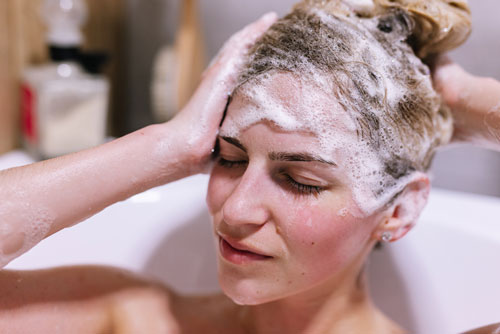
We now know the importance of scalp exfoliation for skin and hair health. The frequency for exfoliating this area depends on your hair type and how much styling product you use. In general, every other week is adequate. But if you use a lot of products that go on the scalp, like dry shampoo, weekly exfoliation might be necessary. Try a quality serum, like Sunday Riley Clean Rinse Scalp Serum, infused with AHAs (alpha hydroxy acids) and BHAs (beta hydroxy acids). That said, those with psoriasis, dandruff, and dermatitis should avoid scalp exfoliation.
Whether it’s the scalp or another area on your body or face, always stop exfoliating if you experience redness, itching, or other irritation. Give the area a rest and hydrate it thoroughly. “Over-exfoliation can lead to a damaged skin barrier,” says Wang. And that can lead to a whole host of problems you don’t want, including discolored, dehydrated, dull, or scaly skin. But remember, exfoliation — done regularly and properly — will help meet your skincare goals.
We only recommend products we have independently researched, tested, and loved. If you purchase a product found through our links, Sunday Edit may earn an affiliate commission.
